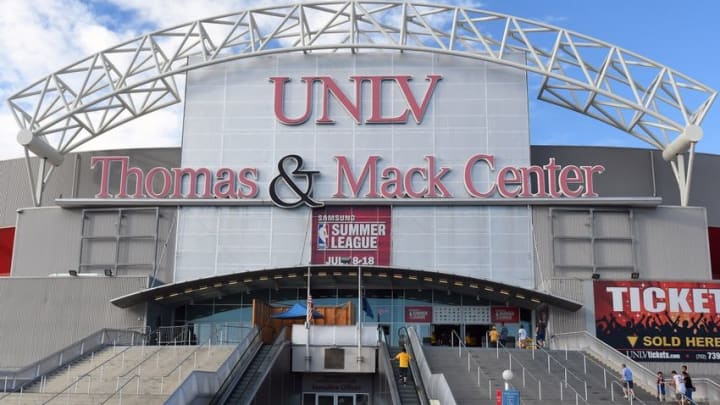Q&A with Brooklyn Nets scout and former player Shelden Williams

One of the more recognizable faces in the crowd at the Las Vegas Summer League is former 5th overall pick Shelden Williams. Back in the summer of 2006, Williams suited up for the Rocky Mountain Revue (now Utah Summer League) as he prepared to embark on a professional basketball career that would take him from Atlanta, Ga. all the way to Tianjin, China, with plenty of stops in between.
Ten years later, Williams is again at the genesis of a new career, this time as a pro scout for the Brooklyn Nets. Upside & Motor caught up with him to talk about the Nets’ roster situation, his transition to the front office and Summer League experiences as a player.
Upside & Motor: You played your last game a little over a year ago, and then you made your jump to the Brooklyn Nets front office this past March. What brought about that transition for you, and how has the experience been so far?
Shelden Williams: Well, I was debating whether or not to play in China again or come back and spend more time with my daughter. Then I took the last year off to just kinda build my database and portfolio of scouting and things. And then I took my contact list and everybody I’ve played against or with in the NBA and overseas. I had a good start versus everybody else that’s in that position, so I had a lot more intel on these guys, and it kinda worked out for me.
“I’m a big fan of resumes. You know, for a guy who’s been in college for three or four years, you know who that person is. And it’s just a shame that a lot of these three or four-year guys get knocked because of that.”
U&M: When you’re out here scouting, without necessarily getting into too many specifics, what kind of things are you looking for?
SW: Just different things that these players bring. I mean, especially since we are a young team trying to rebuild now, so we’re looking at different guys that fit our cap space or whatever the case may be with that and try to fill roster spots.
U&M: As a former four-year college player, do you view any of the four-year guys who are out here in Summer League any differently?
SW: No, I mean… I’m still learning about the analytic game, but I’m a big fan of resumes. You know, for a guy who’s been in college for three or four years, you know who that person is. And it’s just a shame that a lot of these three or four-year guys get knocked because of that. But I’d say I’m a big advocate of three and four-year guys.
U&M: For a team like the Nets specifically, who obviously had a relatively unique situation where they had two offer sheets out this week [to Tyler Johnson and Allen Crabbe] and had both get matched, does that change anything for you guys in terms of what you’re out here looking for?
SW: Yeah, of course it changes because you have a plan put in place and a team matches that contract, so you have to go with Plan B. So, there’s always a different plan because you don’t really control those situations. We always try to go over every situation in such a scenario, and if things play out the first time, great. If not, we have a Plan B and C, so we’ll see how that works out.
U&M: Last question. You were at Summer League three times as a player. How do you think that experience helped you in your overall development?
SW: My first year, it was a learning experience, same with anybody else. Not knowing with a new team, new situation, new system, how it’s gonna be. Then in my second year, I was more established. I think I wound up being co-MVP of the Rocky Mountain Revue with Paul Millsap. And then in my third year, I was in a situation with the Kings where I wasn’t really part of their main focus, so I was just kinda on their team. So, it was a little bit different from that. But from my first year to my second year, it was a big gap. I jumped because of the things I learned in my first year and second year.